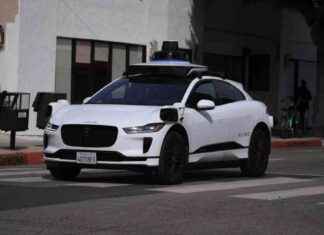The police and the army were deployed on Monday, March 20, in South Africa, the call for a national blockade by a radical left party raising fears of a repetition of the deadly riots of 2021, in an economic and social context still in Bern.
The Economic Freedom Fighters (EFF) party led by red-beret troublemaker Julius Malema has urged South Africans for a “peaceful” day of general strike and protests to demand the resignation of President Cyril Ramaphosa, who was judged unable to address endemic unemployment (32.9%), growing poverty and a severe electricity crisis.
Major police forces have been put in place in several provinces, with nearly 3,500 soldiers mobilized. Private security companies, many in the country where the crime rate is among the highest in the world, have been called in to help.
In Johannesburg and in the capital Pretoria, cautious traders preferred to leave the curtain down. Already 87 people were arrested overnight from Sunday to Monday for disturbing public order, according to the police.
“Unable to run the country”
“Today we have a date with the street. Comrades, this is the most successful blockade in the history of South Africa,” Mr. Malema shouted to his supporters in Pretoria. By midday, however, only about 5,000 people, dressed in EFF red or trade unionists, had gathered in Pretoria. Demonstrations have also started in the Cape region and in the province of KwaZulu-Natal (southeast).
But the ruling ANC has already welcomed in a statement the limited participation in the “alleged national blockade”. In Cape Town, the City recorded sporadic incidents but overall “minimal disruption related to the EFF blockade”.
Referring to job shortages and the ever-increasing cost of living, Gift Boquopane, 42, an EFF member at the protest in Pretoria, said the government is “not doing anything for us”.
ANC officials “have proven beyond a shadow of a doubt that they are incapable of running the country,” judge Trevor Shaku, a trade unionist.
A year before the 2024 general election, Cyril Ramaphosa faces growing discontent. For months, the 60 million South Africans have been without power for up to twelve hours a day.
“Anarchy”
The continent’s leading industrial power is unable to produce enough electricity. The heavily indebted state-owned Eskom struggles with dilapidated and poorly maintained power plants after years of corruption and mismanagement.
But for the first time since January, the country was spared the cuts on Sunday and Monday: “One of the main victories of the national blockade, even before it started, is to have reduced load shedding considerably,” said noted the EFF in a press release.
Promising to prevent “anarchy”, President Ramaphoa had instructed the security forces to avoid further riots.
In July 2021, the worst violence in the country since the end of apartheid and a wave of looting had killed more than 350 people. Initially triggered by the incarceration of former President Jacob Zuma, convicted of contempt of justice, the violence was also a sign of a tense social and economic climate.
Mr Ramaphosa was reappointed President of the ANC in December 2022, having escaped impeachment proceedings after mysterious sums of cash were stolen from one of his properties. He is assured of a second term at the head of the country if the party wins the polls in 2024.






